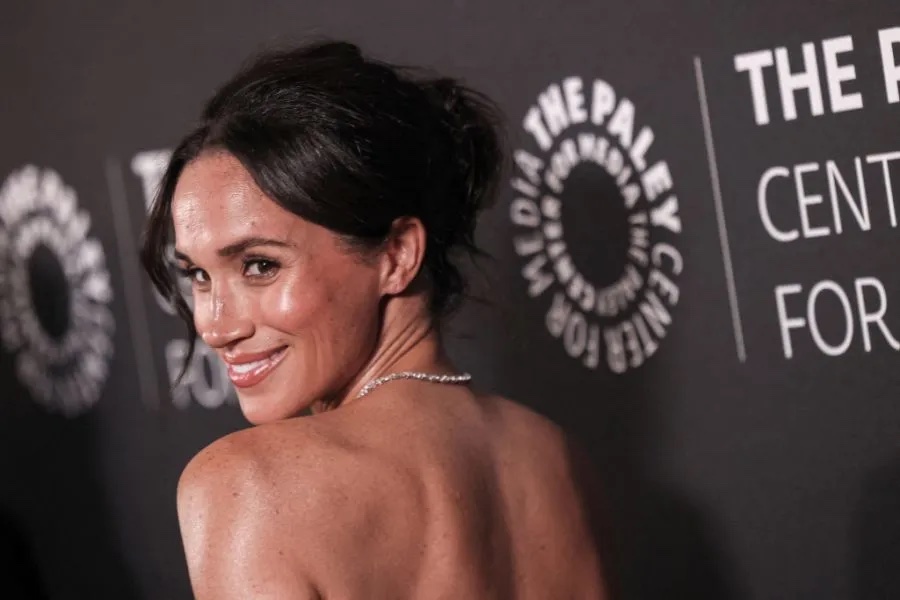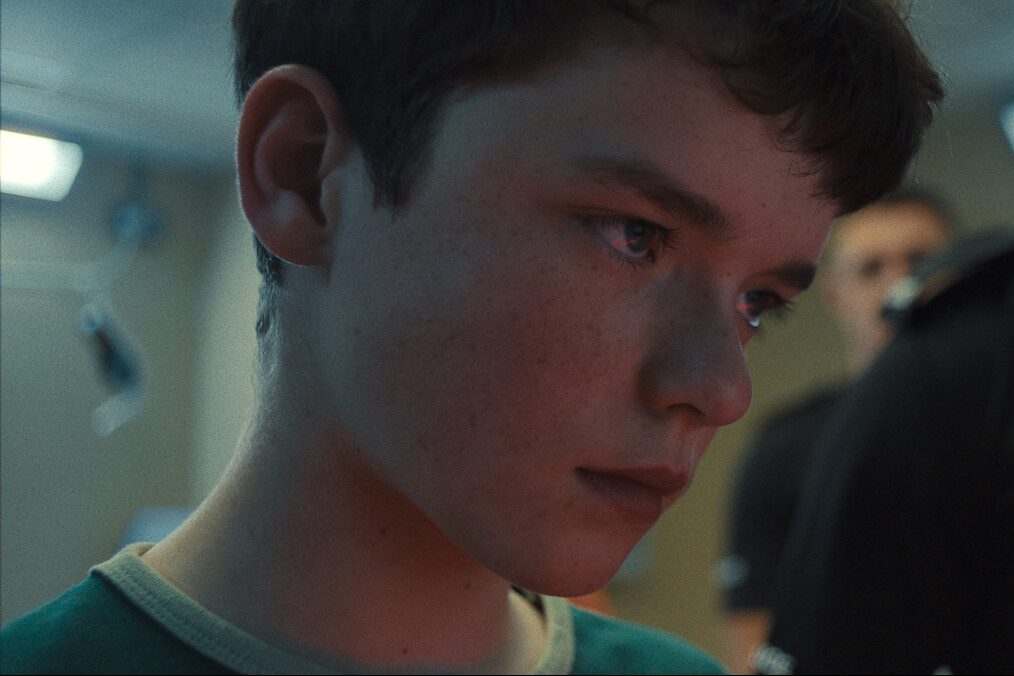This article is in
The Spectator’s inaugural US edition. Subscribe here to get yours.
Peaky Blinders would have you believe it’s the best of British: sharp suits and vests, the workingman’s flat cap and the gangster’s slo-mo swagger, the chug of Anglo alternative rock, and a smörgåsbord of regional accents, Academy Award-nominated guest stars and oh-look-I-remember-him cameos from historical figures. These are the ingredients of Britain’s answer to the American sagas that set new standards for television: The Sopranos, The Wire, Breaking Bad. Yet there’s always been the whiff of style over substance to Peaky Blinders, a sense of looking back without seeing anything new.
But does any of that matter when the hype machine is running at full speed? After being syndicated across Netflix by Harvey Weinstein — yes, him — the Birmingham gangster drama has cornered itself a massive American fan base, even though some viewers have to turn on the subtitles to decipher the thick accents. While the streaming service’s viewership numbers are infamously opaque, Google Trends reveals that last year, Peaky Blinders was Netflix’s most searched-for program in Massachusetts. And it’s lauded by leagues of celebrity supporters, from Tom Cruise and Brad Pitt to Snoop Dogg and Ed Sheeran. Clearly creator Steven Knight has concocted an appetizing formula.
It’s not surprising, then, that the fifth season begins by hitting all the same beats as its predecessors. Season four’s finale bent over backwards to move the chess pieces into place for this moment, and at the expense of its pacing and structure. If you could choose between ending on a deserted beach with an armed standoff between lead character Tommy Shelby (Cillian Murphy) and Alfie Solomons (Tom Hardy), or on Tommy’s election to Parliament, only a madman would plump for politics as the more exciting option. Was it worth it? We open with some members of the Shelby family hooked on cocaine, some having casual sex with strangers, and some treating themselves to a spot of the old ultraviolence. Tommy’s foray into the House of Commons seems to be the only fresh element.
Two years into his career as a Labour MP, Tommy and his exquisite cheekbones have set about carving a niche befitting a man of the people: ‘We are for the shoe shiners and the can carriers of South Birmingham and all across Great Britain,’ Tommy orates. ‘I would suggest that those who so recklessly lost their fortune on the capitalist lottery learn to shine their own shoes, carry their own can and pay their own bills.’ Bernie Sanders would be proud. With his luxurious country mansion and fearsome business empire, Tommy is the archetypal Champagne socialist, a point subtly made in the third episode when he drinks a bottle of Champagne with socialist Jessie Eden.
This season’s historical cameo comes courtesy of Sam Claflin, slicking back his hair to play Oswald Mosley, who was to become the founding father of British fascism. In 1929 though, Mosley is still a war hero, champion fornicator, Labour MP for a constituency near Birmingham, and member of the Labour cabinet. This proto-Mosley is rather taken with Tommy Shelby’s populist rhetoric. We know that Mosley is a rotten bastard because he yells at a waiter in the second episode.
Though Tommy’s haves-and-have-nots routine goes down well in government, it’s all an act. The Shelbys have spent years turning their dirty money clean and establishing legitimate streams of revenue, and the capitalist lottery of the Wall Street Crash costs the family heavily. The Great Depression is on its way, but populist prince Tommy has a plan for that: refilling the coffers by stepping up illegal betting operations and branching out into fixing soccer matches. Those of you hoping Peaky Blinders was about to evolve into a Thirties variation on The West Wing must consider this a terrible shock.
Violence is as integral to the show’s popularity as three-piece suits and Cillian Murphy’s cheeks. In Britain, the Peaky cult is credited with inspiring David Beckham fashion lines and a spike in babies called Arthur and Ada. Shouldn’t we also ask whether the recent spate of racetrack brawls over there is emulating the glamorous trackside punch-ups on screen? For the sake of Preakness, let’s hope not.
Several American longform dramas have earned devout followings through deploying the same narrative structure: introduce your antihero, make the audience love him despite his misdeeds, build him up, and knock him down. It works whether you’re a New Jersey crime lord, an Albuquerque chemistry teacher with terminal cancer, or a New York ad man. True to form, the early signs of downfall are showing in Thomas Shelby. Contenders are muscling in on his turf, he suspects family members of betrayal, and he takes so many opiates that he hallucinates his dead wife. But then he’s unraveled before, and Steven Knight has plans to follow the Shelby story for at least another two seasons, all the way to 1940. While Tommy’s demise is surely inevitable, you’d be forgiven for thinking it’s not coming for another few years.
What are the stakes then? Do the Peaky people even need them raised if they are to stay entertained? Or will the obsessive Peaky aesthetes, with their pocket watches, Henry V haircuts, and rolled-up copies of Esquire keep the blinders on and nod along to the same Nick Cave song and the same slo-mo shot of the same actors walking through the same blackened Birmingham set? When you’ve got a winning formula, every change is a risk. Perhaps that’s why the Peaky Blinders crew make so few.
The fifth season of Peaky Blinders can be seen on Netflix from October 4. This article is in The Spectator’s inaugural US edition. Subscribe here to get yours.



























